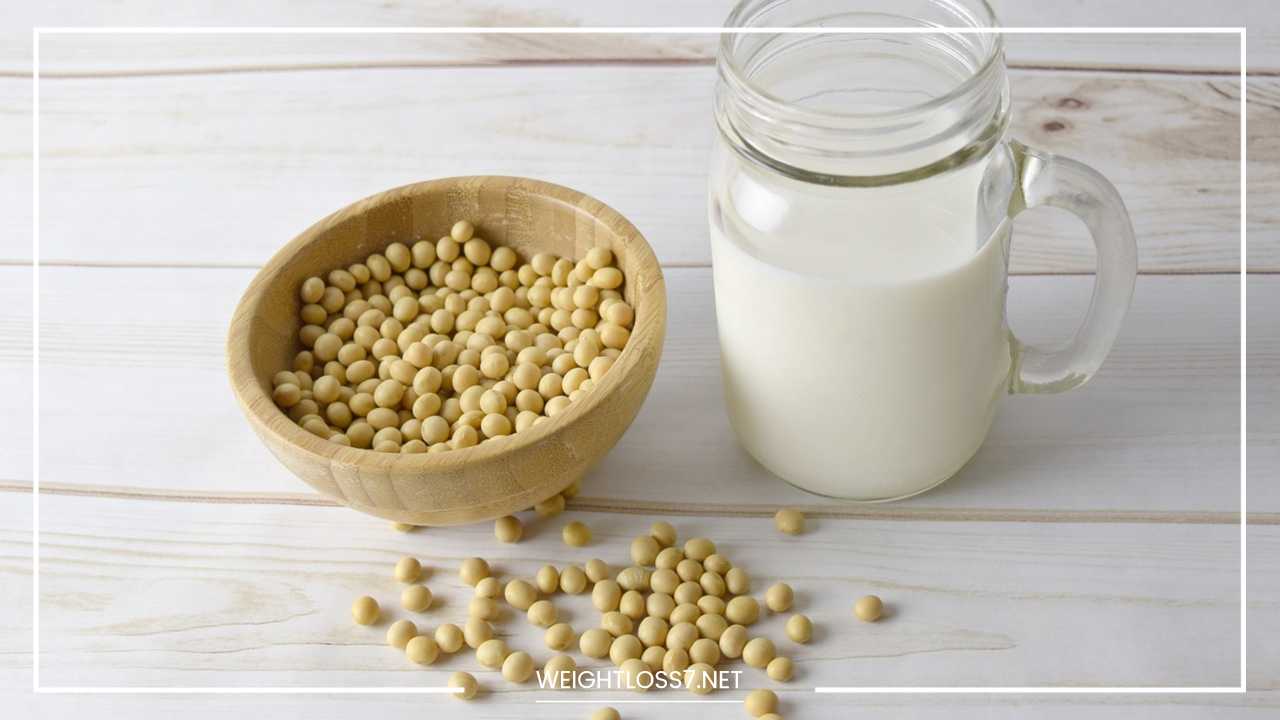Is Soy Bad for You?

Soy
Is Soy Bad For You? Unveiling the Complexities of a Nutritional Powerhouse
Soy. A breakfast staple in tofu scrambles, a meat substitute in hearty chili, and a hidden ingredient in countless processed foods – this versatile legume sparks endless debate in the world of nutrition.
But is soy a health hero or villain? The answer, like most things in the world of food science, is nuanced.
Let’s delve deeper into the science behind soy to separate fact from fiction and determine if this ubiquitous bean deserves a permanent place on your plate.
Soy’s Nutritional Arsenal: A Boon for Your Body
Soybeans are a nutritional powerhouse, packing a punch with a complete protein profile that delivers all nine essential amino acids your body can’t produce on its own.
This makes soy a valuable source of protein, particularly for vegetarians and vegans who may struggle to meet their daily needs. But soy’s benefits extend far beyond protein.
-
Fiber Fantastic: Soybeans are a good source of dietary fiber, which plays a crucial role in digestion, promoting gut health and regularity. Fiber also helps regulate blood sugar levels and may contribute to a feeling of fullness, aiding in weight management efforts.
-
Vitamin and Mineral Powerhouse: Soybeans are a treasure trove of essential vitamins and minerals. They are a good source of B vitamins, including folate, which is vital for cell growth and DNA synthesis. Soybeans also boast minerals like manganese, copper, phosphorus, and magnesium, all of which contribute to various bodily functions.
-
The Isoflavone Advantage: Perhaps the most unique aspect of soybeans lies in their isoflavone content. Isoflavones are a class of plant compounds with weak estrogen-like properties. While this has raised some concerns, the potential health benefits of isoflavones are attracting significant research interest.
Soy and Heart Health: A Potential Ally
One of the most promising areas of soy research focuses on its potential impact on heart health. Studies suggest that moderate soy consumption may improve heart health by lowering LDL (“bad”) cholesterol levels. This is likely due to the presence of isoflavones, which may interfere with cholesterol absorption in the intestine.
Additionally, some studies suggest soy may contribute to a slight reduction in blood pressure, another critical factor for heart health.
While more research is needed to fully understand the mechanisms at play, the existing evidence paints a promising picture for soy’s role in promoting a healthy heart.
Soy and Bone Health: Building Strong Foundations
As we age, bone health becomes a growing concern, particularly for women who experience a decline in estrogen production after menopause. This can lead to bone loss and an increased risk of osteoporosis. Interestingly, soy’s isoflavones may offer some benefits in this area.
Studies suggest that soy consumption may help maintain bone mineral density and reduce the risk of fractures in postmenopausal women. This is thought to be due to the weak estrogenic activity of isoflavones, which may mimic the beneficial effects of estrogen on bone health.
However, it’s important to note that soy is not a magic bullet for bone health. A balanced diet rich in calcium, vitamin D, and weight-bearing exercise are still essential for maintaining strong bones throughout life.
Soy and Cancer Prevention: Unveiling the Complexities
The link between soy and cancer prevention is one of the most hotly debated topics. Some early research suggested a possible association between soy consumption and a reduced risk of certain cancers, like breast and prostate cancer. However, the picture is far from clear.
More recent studies have yielded mixed results, with some showing no significant impact and others suggesting potential benefits. The complexity lies in the diverse types of cancer, individual variations in soy metabolism, and the overall dietary patterns in which soy is consumed.
While further research is needed to definitively understand soy’s role in cancer prevention, it’s important to remember that a healthy diet rich in fruits, vegetables, and whole grains is likely to have a more significant impact on reducing cancer risk than any single food.
Addressing the Concerns: Separating Myth from Reality
Despite its potential benefits, soy has garnered some negative attention. Let’s address some of the most common concerns and separate myth from reality:
-
Hormonal Havoc: Isoflavones, with their weak estrogenic properties, have raised concerns about their impact on hormone-sensitive cancers like breast cancer. However, extensive research suggests moderate soy consumption is safe for most women, including breast cancer survivors. In fact, some studies suggest soy intake may even have a protective effect.
-
Thyroid Trouble: High soy intake might interfere with thyroid function in individuals with existing hypothyroidism. This is because soy can interfere with the absorption of thyroid medication. If you have hypothyroidism, it’s crucial to discuss soy intake with your doctor to ensure proper medication absorption.
-
GMO Dilemma: Genetically modified organisms (GMOs) are a hot-button issue, and soy is a major crop where GMO technology is used. While some avoid GMO soy due to concerns about safety, there’s no scientific evidence to suggest GMO soy is any less safe than conventional soy. Regulatory bodies around the world extensively evaluate GMO crops for safety before they are approved for consumption.
- Processed Soy Problem: Many commercially available soy products are heavily processed and can be loaded with unhealthy ingredients like sodium, added sugars, and unhealthy fats. These products may not offer the same health benefits as whole soy foods and can contribute to negative health consequences if consumed excessively.
Making Soy Work for You: A Guide to Maximizing Benefits
If you’re looking to incorporate soy into your diet and reap its potential health benefits, here are some key tips:
-
Focus on Whole Soy: Choose whole soy foods like edamame, tofu, tempeh, and minimally processed soy milk. These options are minimally processed and retain most of the nutrients and fiber naturally present in soybeans.
-
Limit Processed Soy: While convenient, heavily processed soy products like veggie burgers, soy hot dogs, and certain soy-based snacks can be high in sodium, unhealthy fats, and added sugars. Opt for minimally processed whole soy foods whenever possible.
-
Read Food Labels: Become a label-reading pro! Pay close attention to the ingredients list and serving size when choosing soy products. Look for products with a short ingredient list, minimal added sodium and sugars, and a good amount of protein per serving.
-
Variety is Key: Don’t rely solely on soy for your protein needs. Include soy as part of a balanced diet rich in fruits, vegetables, whole grains, and lean protein sources from various animal and plant sources. This ensures you get a broad spectrum of essential nutrients for optimal health.
The Bottom Line: Soy – A Boon or Bane?
Soy is a nutritious and versatile food with a range of potential health benefits. From its protein content to its potential impact on heart and bone health, soy offers valuable contributions to a balanced diet.
While some concerns exist, like the impact on thyroid function in individuals with hypothyroidism, research suggests moderate soy consumption is safe for most healthy individuals.
Remember:
-
Soy is unlikely to be a magic bullet for good health. Focus on an overall healthy diet and lifestyle that incorporates a variety of nutrient-rich foods and regular physical activity.
-
If you have specific health conditions or concerns about soy intake, consult a doctor or registered dietitian for personalized guidance.
By understanding the science behind soy and making informed choices about how you incorporate it into your diet, you can leverage its potential benefits while minimizing any potential downsides.
So, the next time you reach for a tofu scramble or a cup of soy milk, do so with confidence, knowing you’re making a well-informed choice for your health.
Unveiling the Future of Soy: Research Frontiers and Emerging Applications
The world of soy research is constantly evolving, with scientists delving deeper into its potential health benefits and exploring innovative applications. Here’s a glimpse into some exciting frontiers in soy research:
-
Soy and Cognitive Function: Early research suggests a possible link between soy consumption and improved cognitive function, particularly in older adults. Studies are investigating whether soy can help prevent age-related cognitive decline and neurodegenerative diseases like Alzheimer’s.
-
Soy and Gut Health: The human gut microbiome plays a crucial role in overall health. Research is exploring how soy consumption may influence gut microbiota composition and function, potentially contributing to digestive health and immune system regulation.
-
Sustainable Food Systems: Soybeans are a valuable source of plant-based protein and require less land and water compared to meat production. Research is ongoing to develop sustainable soy production practices that minimize environmental impact while meeting the growing demand for protein.
-
Novel Soy-Based Products: Food scientists are constantly innovating with soy, developing new plant-based meat alternatives with improved taste and texture. Additionally, research is exploring the use of soy protein in various food applications, such as gluten-free bakery products and functional foods with added health benefits.
Soy Beyond Food: Unveiling Industrial Applications
Soy’s versatility extends beyond the realm of food. Here are some interesting industrial applications of soy:
-
Biodegradable Materials: Soy-based bioplastics are being developed as a sustainable alternative to traditional petroleum-based plastics. These biodegradable plastics can help reduce plastic pollution and waste.
-
Industrial Lubricants: Soybean oil can be processed into bio-based lubricants that are eco-friendly and offer comparable performance to petroleum-based lubricants.
-
Biofuels: Soybean oil is a potential source of biodiesel, a renewable and cleaner alternative to traditional fossil fuels.
The Takeaway: Soy – A Versatile Powerhouse with a Promising Future
Soy is a complex and fascinating food with a rich history and a bright future. From its nutritional benefits to its emerging applications in various industries, soy offers a multitude of advantages.
By staying informed about the latest research and making conscious choices about how you consume soy, you can leverage its potential to contribute to a healthy diet and a more sustainable future.

















